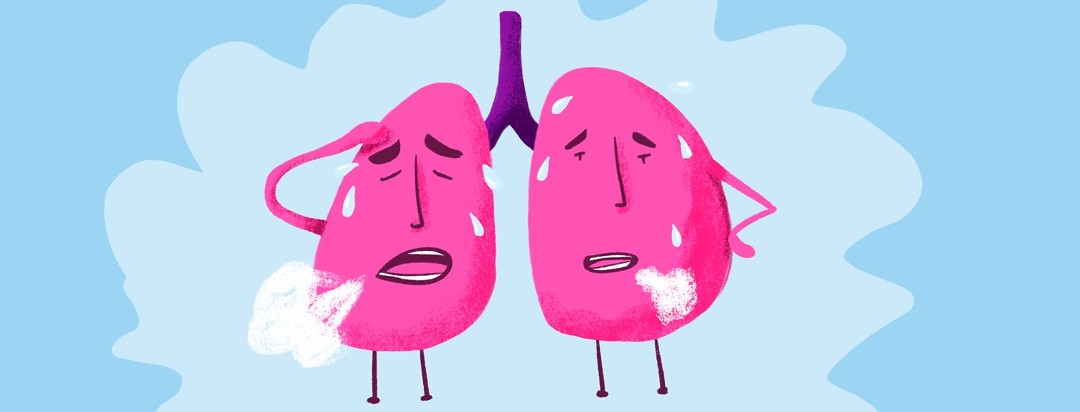Breathing is Exhausting!
Breathing is a passive movement. It is an action that our brain triggers our body to do without us consciously thinking about it. Until it becomes difficult and we are hyper-aware of every breath. This is something that only people who have ever had any breathing difficulties can understand.
A flare-up can use every ounce of energy
When our asthma is acting up, whether it be a slow building flare-up over a couple of weeks or an immediate reaction to a trigger, it can take every ounce of energy we have to just breathe. We use much more than our lungs to breathe. There are many muscles including the intercostal muscles between the ribs and the diaphragm which is a pretty large one! When breathing is difficult the shoulder and upper back muscles are also used to assist in pulling in and blowing out air from our lungs. In the medical field, we refer to this as retractions when you can physically see the pulling in movement.
Having to use all of these accessory muscles to breathe will use more calories and make you even more tired. You know the feeling after you work out or are doing a task that makes your muscles ache for days afterward? The same thing happens after a bad asthma attack. It is like running a marathon without ever putting your feet on the ground.
Relief from post-asthma exacerbation exhaustion
It is not uncommon to feel completely wiped out and exhausted from just breathing. There are a few things you can do to help with the post-asthma exacerbation exhaustion:
Rest
When I say rest I mean REST. Relax, and do as little activity as you can. Allow your body to catch back up and regain strength. Don’t be afraid to ask for help when you need it. Whether it be going to the store for you or helping with daily household tasks for a while.
Stay hydrated
Keeping on top of your fluids will help your muscles and lungs heal faster. Oftentimes, when asthma flares up our electrolytes can get all out of whack and fluids can help fix that issue. Stay away from caffeinated and overly sugary drinks. Stick to water and other hydrating fluids.
Pay attention
After an asthma flare-up, it is not uncommon for you to rebound into another flare. Take extra care to listen to your body for any signs or symptoms. Stay on top of your meds and be in communication with your medical team.
Give yourself time to rest
With asthma, sometimes breathing is completely and utterly exhausting! It is so important to take time to allow your body to rest, heal, and recover so you will be back to breathing easy!

Join the conversation